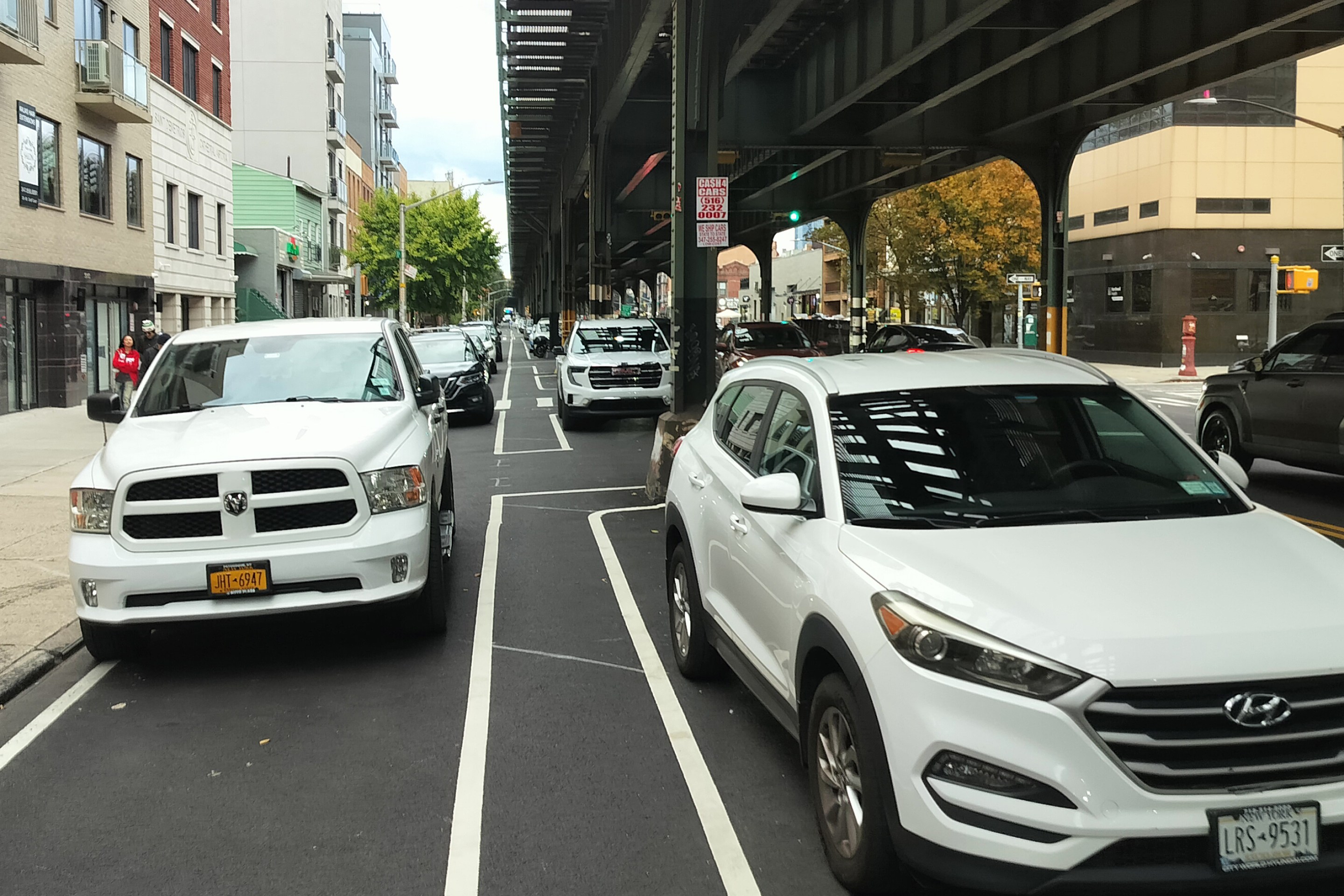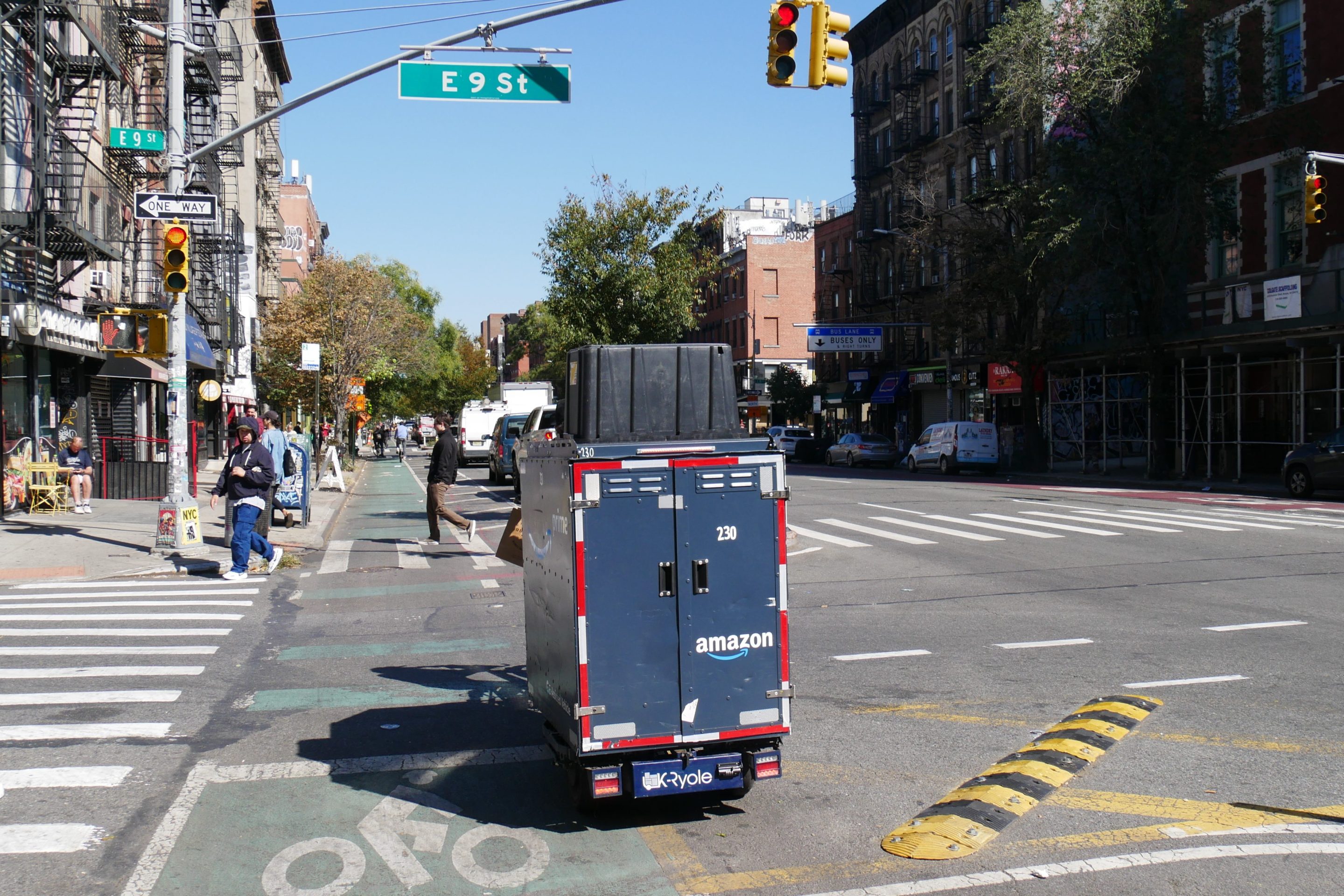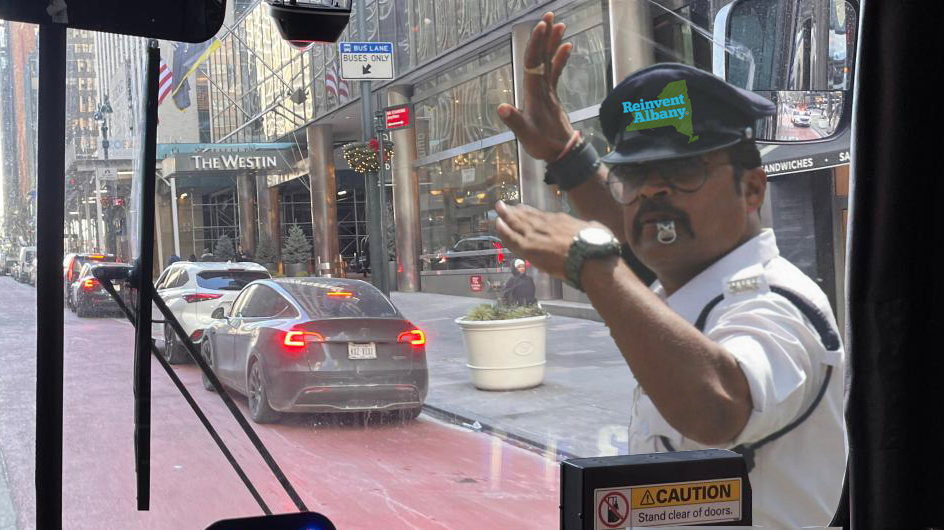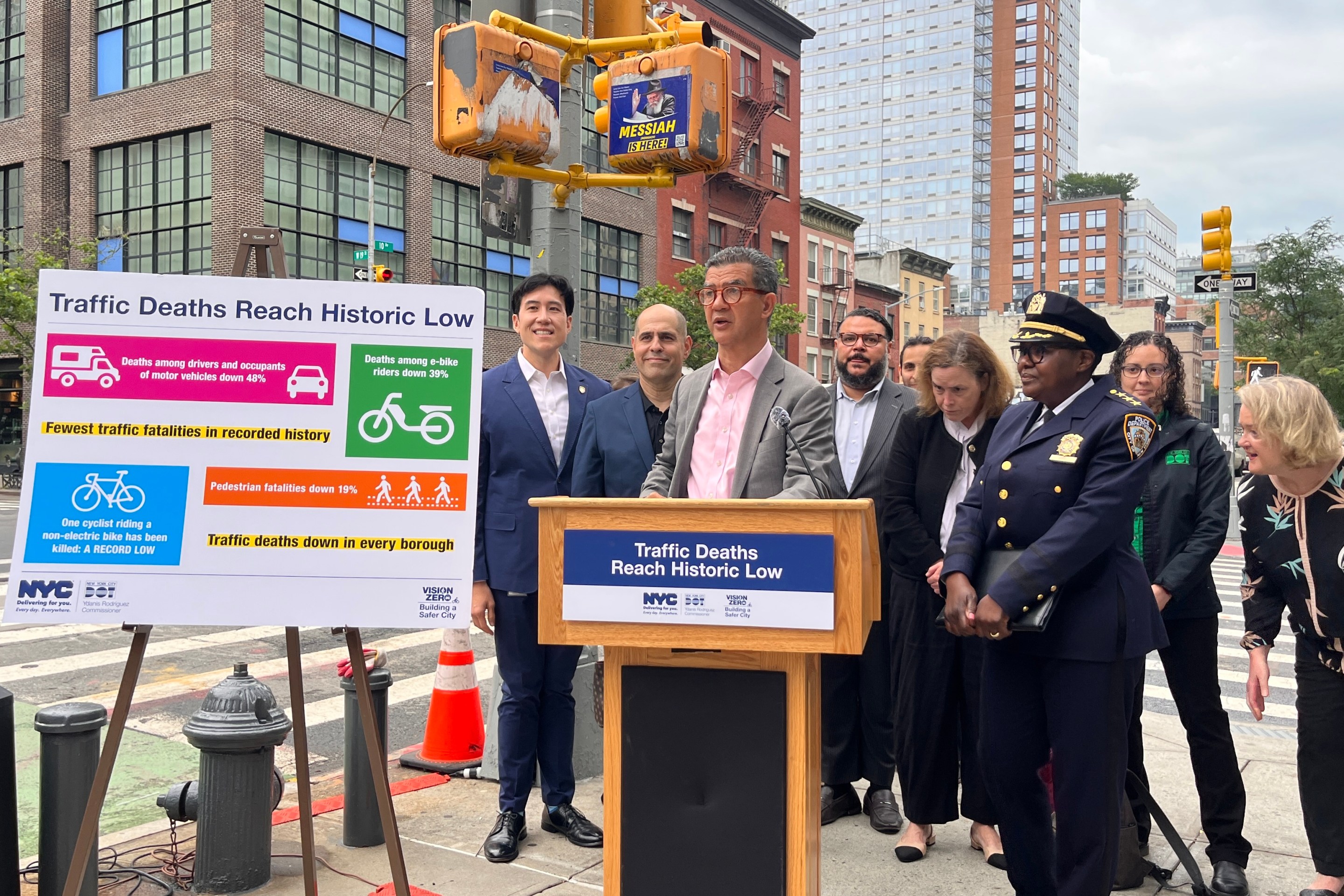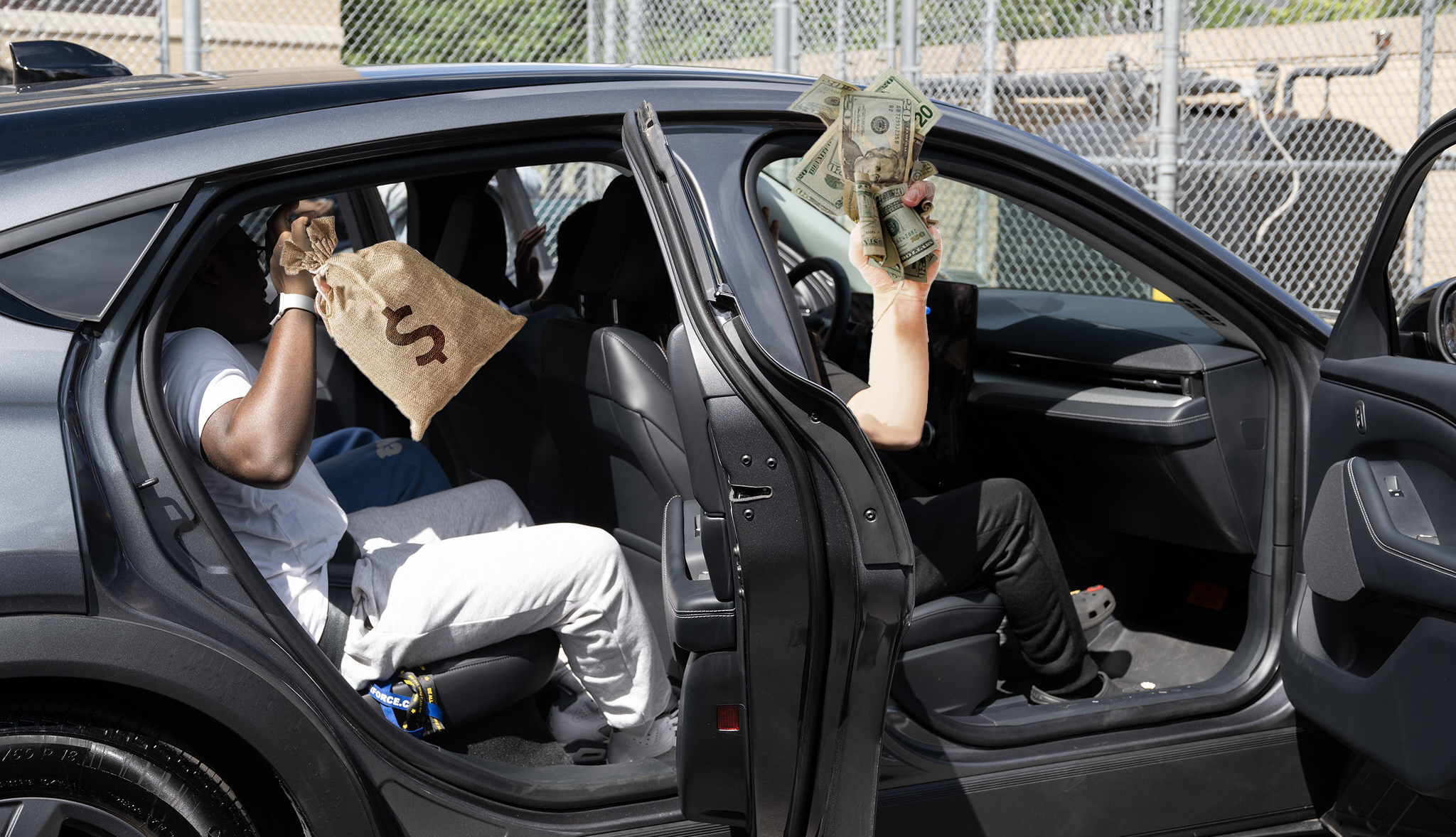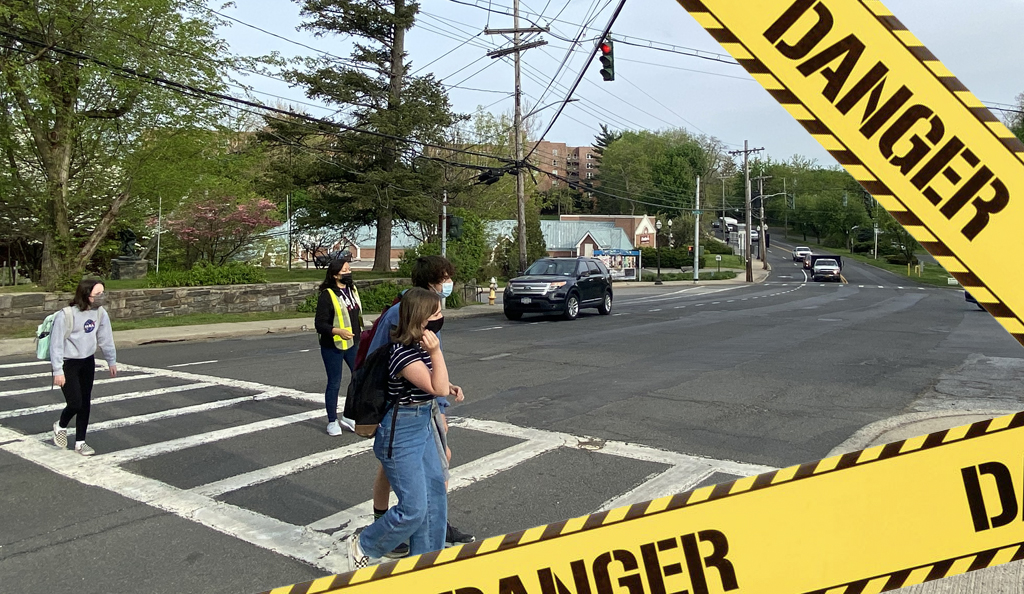
“Shouldn’t be controversial.” “A tragedy.” “Horrible.” “New York is not a leader.”
Those are the choice words used by advocates on Monday as word spread that the Stop Super Speeders bill — a key street safety priority this session — will not be passed by the state legislature this year, allowing more chronic speeders to maim and kill.
The bill (S4045/A2299) was promoted by its sponsors as the simplest fix: it would require people with six or more camera-issued speeding tickets in a year to have a device installed in their cars that prevent them from going more than five miles per hour above the speed limit — much like a 2010 law requiring devices inside the cars of convicted drunk drivers to make sure they are sober before they start their cars.
Nonetheless, some Assembly members balked.
“It is outrageous that the New York State Assembly is hiding behind lame excuses once again,” said Amy Cohen, founder and president of Families for Safe Streets. “This is a common-sense measure that will let the worst-of-the-worst drivers get around, but just makes sure they do so safely. Instead, we will be welcoming into our horrible club more bereaved families whose loved ones were killed in preventable crashes.”
The bill’s Senate sponsor said he would be back next session.
“Laws that enforce the speed limit should not be controversial, but I’ll continue to fight until we pass it,” Sen. Andrew Gounardes (D-Bay Ridge) told Streetsblog. “We owe nothing less to all those who have lost a loved one to reckless driving.”
It’s not just a failure of leadership — it’s hypocrisy.
Assembly Transportation Chair William Magnarelli (D-Syracuse) told Streetsblog that the bill won’t pass this session because Speaker Carl Heastie’s lawyers are concerned about consequences for people who refuse to install limiters and due process for car owners whose friends or family members speed in borrowed cars.
But Magnarelli himself introduced two bills this session related to people who drive while impaired by drugs. One expands the definition of “driving in an intoxicated condition,” so that drugged drivers “don’t get into a car and kill somebody or maim somebody,” he told Spectrum News.
That bill did not raise any due process or enforcement alarms for Magnarelli.
Cohen, whose son, then 12, was killed by a speeding driver in 2013, was appalled that the speed-control devices were seen as different from the drunk-driving control devices.
“Are they saying we should stop mandating [ignition locks],” said Cohen. “and just let people drink and drive even though there may be some people who find a way around the requirement?”
A speed limiter can’t be tampered with, because if it’s damaged, the car won’t move after 15 minutes. And the bill stipulates that anyone tampering with the device could be charged with a misdemeanor punishable by a year in jail.
Lest we forget, the car still works — it just can’t be driven recklessly. So the device doesn’t stop a car owner from lending out the vehicle. In fact, it makes that process even safer.
“When you let someone drive a car, whether you’re a parent who lets a child drive a car or whether you loan it to a friend, you’re responsible for who’s driving the car,” said Brandy Nannini, the head inter-governmental official at SmartStart, an ignition interlock company. “As it relates to speeding, that’s something the owner is going to have to think hard about.”
The Assembly’s failure to pass the bill is “a tragedy,” she added. “It shouldn’t be that way and it doesn’t have to be.”
The technology is already well tested. A city pilot demonstrated that drivers stayed under the speed limit 99 percent of the time. And for nearly a year, speed limiters have been required in all new vehicles sold in the European Union.
Had the Stop Super Speeders bill been previously implemented, a recidivist speeder in Brooklyn would not have been able to kill a mother and two children earlier this year. And a driver would not have been speeding when he killed Niyell McCrorey in Upper Manhattan last November, eight days short of her 14th birthday. (Her grieving father, Darnell Sealy-McCrorey, has been to Albany six times this year to lobby for the bill.)
The delay in the bill’s passage means more death and injury, said Ben Furnas, the executive director of Transportation Alternatives.
“New York families will continue to be at risk every day,” he said.
The Albany watchdog group Reinvent Albany saw foul play.
“Clearly there are some interests in Albany whispering in Assembly leadership's ears to not move this forward,” said Rachael Fauss, the good-government group’s senior policy adviser.
She added that street safety bills “require advocates and bill sponsors to smoke out the opposition,” she added. “What is unknown is where the [Democratic] conference is on this bill, and it is unfortunate that this bill won’t be given a vote to bring members’ positions out into the open.”
That’s because both the Senate and Assembly “conference” behind closed doors. Even staffers are not supposed to be present, meaning New Yorkers don’t know who’s opposing what — or why. The only way to know members’ actual positions is when they vote, but most bills only get a vote if they’ll pass.
The result of the obfuscation and worthless objections?
“The New York State legislature is not a leader when it comes to traffic safety,” said Frank Harris, head of state government affairs for Mothers Against Drunk Driving. “That is clearcut, full stop, end of story.”

